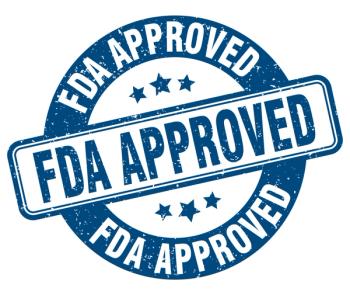
Survey: Pharmacy schools not paying enough heed to OTCs
Survey finds schools of pharmacy don't offer otc courses. Covington offers examples of nonprescription curriculum.
SELF-CARE
Survey: Pharmacy schools not paying enough heed to OTCs
Pharmacists have an opportunity to assist patients with their over-the-counter drug therapy, but most colleges of pharmacy are not emphasizing nonprescription drug therapy in their curriculum. This is the observation of Tim Covington, Pharm.D., Bruno professor of pharmacy at the McWhorter School of Pharmacy, Samford University, and executive director of The Managed Care Institute, Birmingham, Ala.
Covington, who spoke recently to attendees at the American Association of Colleges of Pharmacy's annual meeting in Salt Lake City, based his observations on a survey he conducted with Beth Wood, Pharm.D. The National Curriculum Survey: Status of Instruction in Nonprescription Drug Therapy was mailed to 82 pharmacy schools in the spring of 2003.
Thirty-eight out of 82 course coordinators who received the survey responded, for a 46% response rate. Here are some of the highlights of the findings:
Thirty course coordinators strongly agreed that self-care utilizing OTC drug therapy is increasing; 32 course coordinators strongly agreed that the Rx-to-OTC switch movement is expanding professional opportunities for pharmacy.
Asked whether their school's curriculum prepares graduates well to advise and counsel patients in the proper selection, use, and monitoring of OTC drugs, 13 coordinators said they "strongly agree," 18 said they "agree," one course coordinator had no opinion, four respondents said they "disagree," and two respondents said they "strongly disagree."
When it comes to the number of stand-alone OTC drug therapy courses offered in their curriculum, 19 course coordinators said their school requires one course; two respondents said their schools offer one elective; eight respondents mentioned that two courses are required; and three respondents stated that their school offers two electives in OTC drug therapy.
Has your curriculum in OTC drug therapy gained or lost required status over the past five years? Twenty respondents said OTC drug therapy has "maintained" its place in the curriculum; six respondents said it has lost status; four respondents noted that it had gained status; and five respondents said the subject "never had" status.
Has your curriculum in OTC drug therapy gained or lost credit hours in your curriculum over the past five years? Nine course coordinators said OTC drug therapy gained credit hours, seven said OTC drug therapy lost credit hours; and 22 respondents said there was no change in credit hours.
"Many of the faculty who teach in the nonprescription drug therapy domain have been raising concerns about losing curriculum share in this critical area. Schools of pharmacy can't deny the inevitability of the marketplace. We have to put the public interest first and prepare pharmacists to be more proficient in pharmacy-assisted self-care," stressed Covington.
Covington went on to recommend that faculty make sure the nonprescription drug therapy curriculum is properly developed and that it is assigned the proper number of credit hours. He believes there should be four or five credit hours devoted to OTC drug therapy during pharmacy students' first or second year. "After that," he said, "we see it being optimal to integrate nonprescription drug therapy into the rest of the curriculum wherever it's appropriate."
When it comes to the actual courses, Washington State University's Linda Garrelts MacLean, Pharm.D., CDE, who was also on hand at the conference, suggested that community pharmacists and preceptors be brought into the classroom. They can role-play with students to educate them on how to counsel patients on OTCs.
Covington advised schools to develop a two-semester course based on a "virtual family" consisting of five family members whose ages range from pediatric to geriatric. "We develop a medication and medical history on these patients and give them multiple diseases, comorbidity, and complex drug therapy, including Rxs, OTCs, and occasionally herbal therapies. Focusing on the proper use of nonprescription drugs, we assign cases to the students and challenge them to make a selection in light of the clinical circumstances. They have to evaluate all the possibilities against all of the other confounding diseases and drugs. We can also integrate social, legal, and behavioral issues," he said.
The survey will be conducted every two years for use by faculty and academic administrators. Covington recommended that it maintain the goal of preparing pharmacy students to provide patient-focused services to ensure optimal outcomes.
Sandra Levy
Sandra Levy. Survey: Pharmacy schools not paying enough heed to OTCs. Drug Topics Aug. 23, 2004;148:46.
Newsletter
Pharmacy practice is always changing. Stay ahead of the curve with the Drug Topics newsletter and get the latest drug information, industry trends, and patient care tips.























